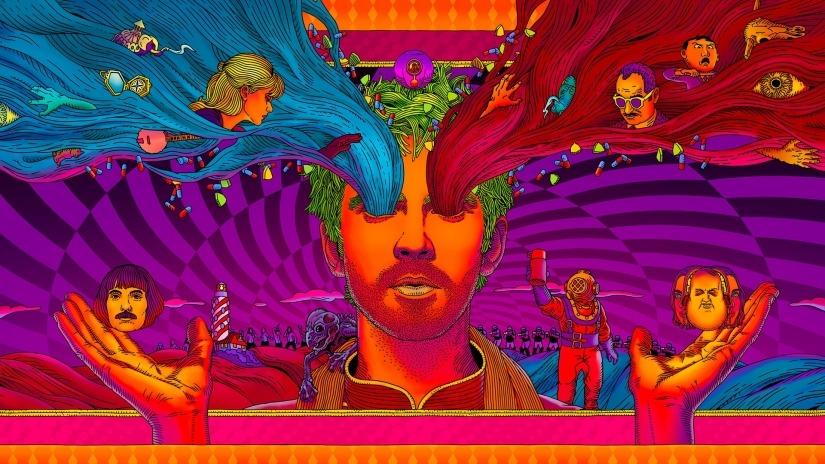Right Time (I guess): Legion

Image: FX
“It’s not real unless you make it real.”
–Oliver Bird
What’s it about?
How to simply describe the strangest comic book show ever made? This is a show where a battle of the minds between nemeses becomes an ethereal dance battle. Or starts with an unexplained but undeniably great musical number (I couldn’t look that up without rewatching the whole thing). A show where the fashion is from the 60s or 70s, the pop culture references are from the 80s, and the tech from the future, making it feel like it simultaneously takes place forty years ago and ten years from now. A show that uses characters and concepts from the X-Men universe but could not care less whether any group called the X-Men exists and is better for it. A show that at least twice took such a huge left-turn for an episode, both narratively and stylistically, that the title cards didn’t even show up until the last five minutes, as if to say “Okay, had a little digression there, but we’re back to the show you know now, see you next week.” It’s not an easy show to summarize.
But I’ll give it a try.
Over 27 episodes, creator Noah “the TV Fargo guy” Hawley created a three-act story filled with rich characters and sudden surprises and incredible visuals that basically breaks down like this. Act One: David Haller, who has struggled with mental illness most of his life, learns that this might not have been true, and that what he thought was illness was in fact his mutant powers developing, and also the dark legacy of a battle between two powerful telepaths: David’s birth father, one Professor Charles Xavier, and Amahl Farouk, aka the Shadow King. Act Two: good battles evil, while a series of lectures on madness and delusion warn us that maybe we can’t trust anything we’ve been told. Or in other words, Act Two: “Oh wait we may have called some things wrong before wait no oh that’s not good…”
And in Act Three, some differing opinions on how to save the world bring us to a question: if fighting dooms the world, can more fighting really save it?
Those are the bones. Everything else cannot be simply described, it needs to be experienced.
Why did it end?
Because Hawley knew this wasn’t a story that could be stretched out indefinitely. It was a story that needed a definitive end, and after season two, that ending was upon him. A three-act story just made sense, so he brought things to a close.
How did it end?
Oddly quietly.
That’s… really all I feel comfortable saying. I really don’t want to give a bunch away here. Because, to answer my next question…
Should I watch it?
Good god yes. I’m hard-pressed to think of any show like Legion. They may never again be a show like Legion, partially because you can’t be Legion if you’re trying to be like something else.
It is unique and crazy and wonderful and you should watch it by any means necessary.
Next page: Let’s speed this up

One thought on “Dan on TV: Multi-requiem”